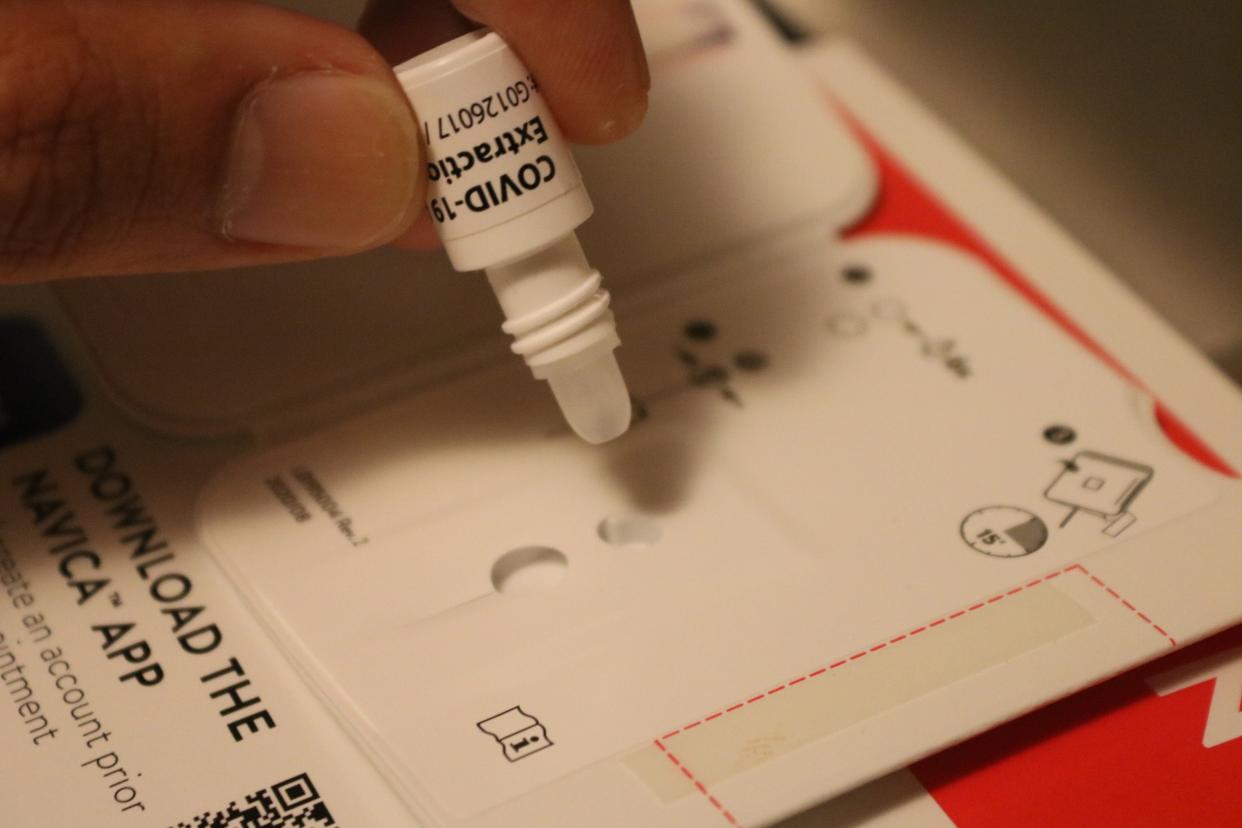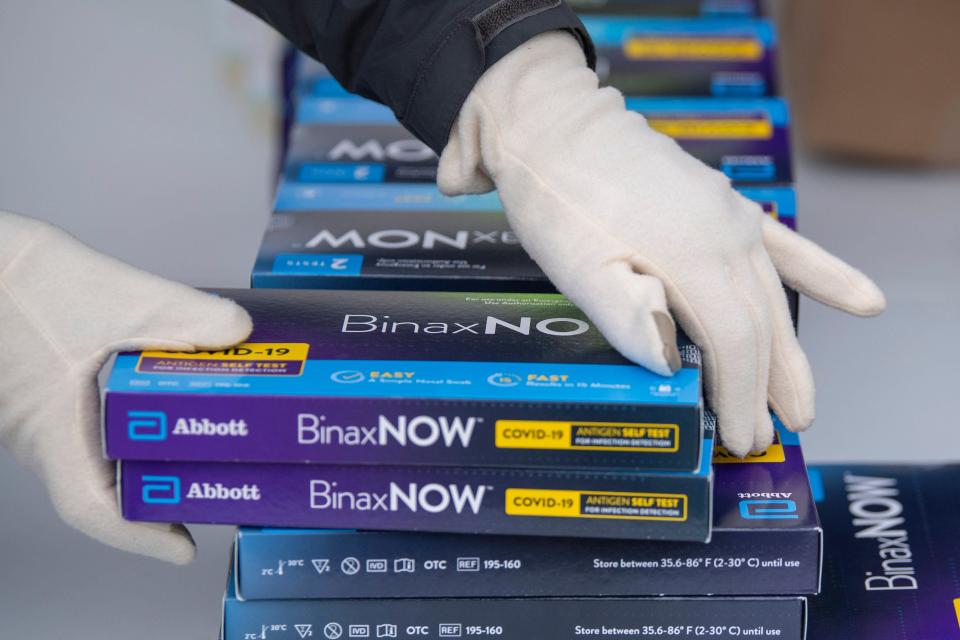Is it a cold? Or allergies? Or is it COVID-19? Experts offer advice given similar symptoms

- Oops!Something went wrong.Please try again later.
At the start of the pandemic, many people had COVID-19 symptoms at the forefront of their minds: high fever, shortness of breath, fatigue and a loss of taste and smell.
But as the virus continued to mutate into new, more contagious subvariants, the symptoms changed along with it.
As COVID cases continue to rise across the state, a headache, sore throat and runny nose, along with a persistent cough and sneezing tend to be more common symptoms, according to Dr. Joseph Gastaldo, an infectious disease expert at OhioHealth.
Latest COVID numbers: Ohio reports 29,876 new COVID-19 cases in past week
Since these symptoms are similar to those of many everyday illnesses — like the flu, the common cold or even seasonal allergies — it can be difficult to know if it's COVID or something less severe.
So what's a person to do these days?
"If they develop symptoms, any symptom of COVID, they should stop what they're doing, isolate themselves and get tested," Gastaldo said.
How do I order at-home test kits?
At-home test kits can be ordered and shipped for free online at covid.gov/tests, and local testing locations can be found through the Ohio Department of Health website at coronavirus.ohio.gov/testing-and-treatment.
If a test is negative but your symptoms persist, you should continue to isolate and test over the next few days, said Dr. Mark Herbert, infectious disease specialist at Mount Carmel Medical Group.

"If you know that there are people around you that seem sick then you should avoid (public) settings," Herbert said. "Similarly, if you are feeling sick, you should not go around other people until you're feeling better or you know for sure that you don't have COVID."
What do I do if I test positive for COVID?
If the COVID test comes back positive, call the doctor right away, especially if you're considered high-risk.
Herbert recommended treatments for COVID symptoms, such as Paxlovid or other oral antiviral medications.
Many treatments require doctor's approval and medication history, he said, to insure the treatment doesn't negatively interact with other medication you might be taking.
It's important to follow guidelines provided by the Centers for Disease Control and Prevention after testing positive, the doctors said. This includes isolating for five days and wearing a high-quality mask for five additional days when leaving the home or interacting with others.
"You have to wear them properly, obviously covering your nose, your mouth and your chin," Gastaldo said. "But we really want people, when a mask is worn, to wear the highest-quality masks that they can."
KN95 and N95 are the highest quality and most effective at stopping the spread of COVID-19 when worn properly, he said. The standard surgical loop masks, typically worn by doctors, are OK. Masks made of cloth or fabric do a worse job of containing COVID-19 particles.
What can I do to prevent getting COVID?
Franklin County is now listed as having a high level of transmission on the CDC's latest COVID-19 data tracker, and Columbus Public Health issued an advisory recommending residents wear masks indoors and in crowded spaces. Franklin County Public Health issued a community mask advisory as well.
Read more: Columbus, Franklin County public health agencies issue indoor mask advisories as cases rise
The doctors agreed that the best way to avoid getting COVID is by doing a combination of things: be fully vaccinated and boosted and follow CDC and local health department recommendations.
"It's kind of like driving your car. You've got airbags, you have sensors, you have seatbelts," Gastaldo said. "Yeah, you can pick and choose one or two of those ... but why not use every layer of protection that you can?"
zjohnson@dispatch.com
@zariajohnson24
This article originally appeared on The Columbus Dispatch: Sore throat, runny nose, cough? Get tested for COVID-19

